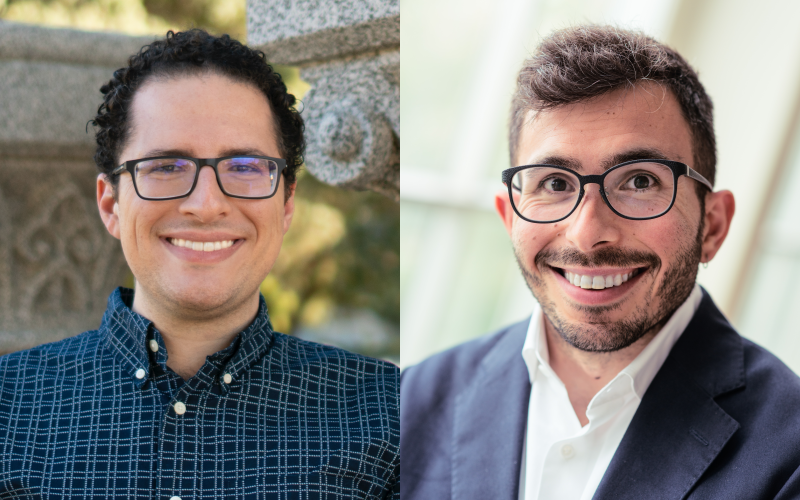On July 23, seventh-year classics Ph.D. student Dillon Gisch and sixth-year art history Ph.D. student Danny Smith became two of the 24 researchers to win this year’s Rome Prize, awarded for the highest standard of excellence in cross-disciplinary work in the arts and humanities.
The students were selected by an international jury curated by the American Academy in Rome from a pool of 1,031 applications spanning across 46 U.S. states and territories and 15 different countries. Each fellow receives a stipend, workspace and the opportunity to reside for four to seven months at the Academy’s 11-acre campus in Rome, Italy.
Gisch and Smith join a cohort of 22 American and two Italian artists and scholars ranging from ages 29 to 59. They represent 11 different disciplines, and consist of composers, visual artists, doctoral candidates and senior scholars.
According to the organization’s website, these “highly competitive fellowships support advanced independent work.”
The prize will support Gisch’s dissertation, titled “Replication and Difference in Images of ‘Modest Venus,’ 200 BCE–600 CE,” which focuses on the lasting effect of the Knidian Aphrodite, a life-sized sculpture of a nude female created by Praxiteles.
The statue is a unique example of female nudity. Until that point in European history, there had been mostly male examples of monumental nudity. The sculpture, which was destroyed 1,500 years ago, has since been replicated hundreds of times through various media, each with subtle differences.
Gish says the contextual and physical differences between these images provide insight into ancient Romans’ social, political and religious perspectives from the time. In doing so, he challenges gendered and cultural narratives perpetuated by the images he studies.
“There’s a lot of misogyny and Eurocentrism that exists in the way these objects have been studied,” he said. “They’re trying to recreate this consummate piece of European art, and we lose sight of the fact that these things are from far-flung corners of the world.”
Smith’s dissertation “Dreaming in Public in Late Medieval Rome,” which he started roughly one and a half years ago, examines depictions of dreaming in the Middle Ages. Smith particularly focuses on depictions of dreaming in Rome, studying how “the visual arts assimilate or take on elements of scientific discourse,” he said.
Smith hopes to uncover and humanize the past by better understanding the intimate histories of how people have dreamed and captured that experience in art and culture. Looking through the archives of the American Academy may prove to be critical to Smith’s research as he continues to investigate how these forms of visual art dealt with elements of scientific discourse and the papal court in the 13th century.
Due to the ongoing COVID-19 pandemic, the residential fellowship will run from January to August 2021, instead of starting in September. However, Academy staff will provide individualized support virtually starting this September.
“It’s kind of like a big dormitory, effectively,” Smith said. “They have some common areas, and everyone has their own space. I know there is a smaller number this year to create buffer spaces, but they plan to have us in a pod, basically, so we have our own bubbles.”
Fellows will be able to co-mingle and talk with one another during communal meals, but these meals are likely to be less frequent than the daily dinners and lunches in times past.
The two fellows look forward to their time in Rome. Smith said living in Rome is an exceptional opportunity, as the location is pertinent to his work and somewhere he can eat well and take in the scenery. Rome was a “fascinating melting pot” in the Middle Ages, according to Smith, as intellectuals from universities in Bologna, Paris and Oxford regularly traveled through the city.
Gisch also said he considers it an honor to be welcomed to the community of fellows and excitedly anticipates the coming months.
“[The prize] has always been the goal post that you shoot for,” Gisch said.
Contact Matthew Turk at mjturk ‘at’ stanford.edu.
